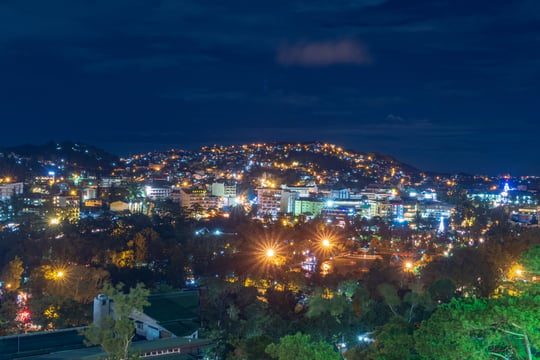Quantela and Connected Kerb Inc. Partner to Advance Smart Infrastructure in the US — Read More...
Quantela and Connected Kerb Inc. Partner to Advance Smart Infrastructure in the US — Read More...

Perched at 1,470 meters above sea level in the Luzon Island mountains, Baguio City stands out among the Philippines' 7,000+ islands. Known as the “City of Pines” because of its vast pine forests that cover the surrounding mountains. It is also considered to be the nation's summer capital; its elevated location and tropical pine forests offer a cool retreat.
The city of Baguio faced multiple challenges in maintaining safety, responding to emergencies, and ensuring a healthy environment for its residents.
One of the key challenges for Baguio City was disaster resources management and crime monitoring. Another major challenge was monitoring the environmental parameters within the city. The city of Baguio needed a unified platform that would streamline data collection, enable real-time monitoring, and foster data-driven decision-making across these critical domains.
With the help of Quantela, Baguio City adopted Quantela’s platform that harnessed the power of data solutions for crime monitoring, disaster resources management, and air quality sensors. The platform offered the following capabilities:
Data-Driven Crime Monitoring: The platform allowed real-time tracking of crime cases, enabling law enforcement to identify patterns and trends in criminal activities. The city could proactively deploy resources to reduce crime rates and enhance public safety by analyzing crime data over different timeframes.
Optimized Disaster Resource Management: The platform continuously monitored disaster resources, assessed their availability, and identified gaps. It provided data-driven recommendations for resource allocation during emergencies, ensuring efficient disaster response and recovery efforts.
"Quantela serves as our technology partner for our initiatives for Baguio Smart City projects. We deeply value their impressive efforts in successfully deploying the Integrated Command and Control Centre (ICCC) Application. This ICCC platform stands as a unified solution, facilitating the seamless integration of near-real-time information from diverse system sources. This in turn gives city authorities a more comprehensive understanding of the urban environment today. By utilizing this knowledge, intelligent choices may be made, resulting in the effective use of urban resources and improved performance for the city as a whole."
Baguio City Council